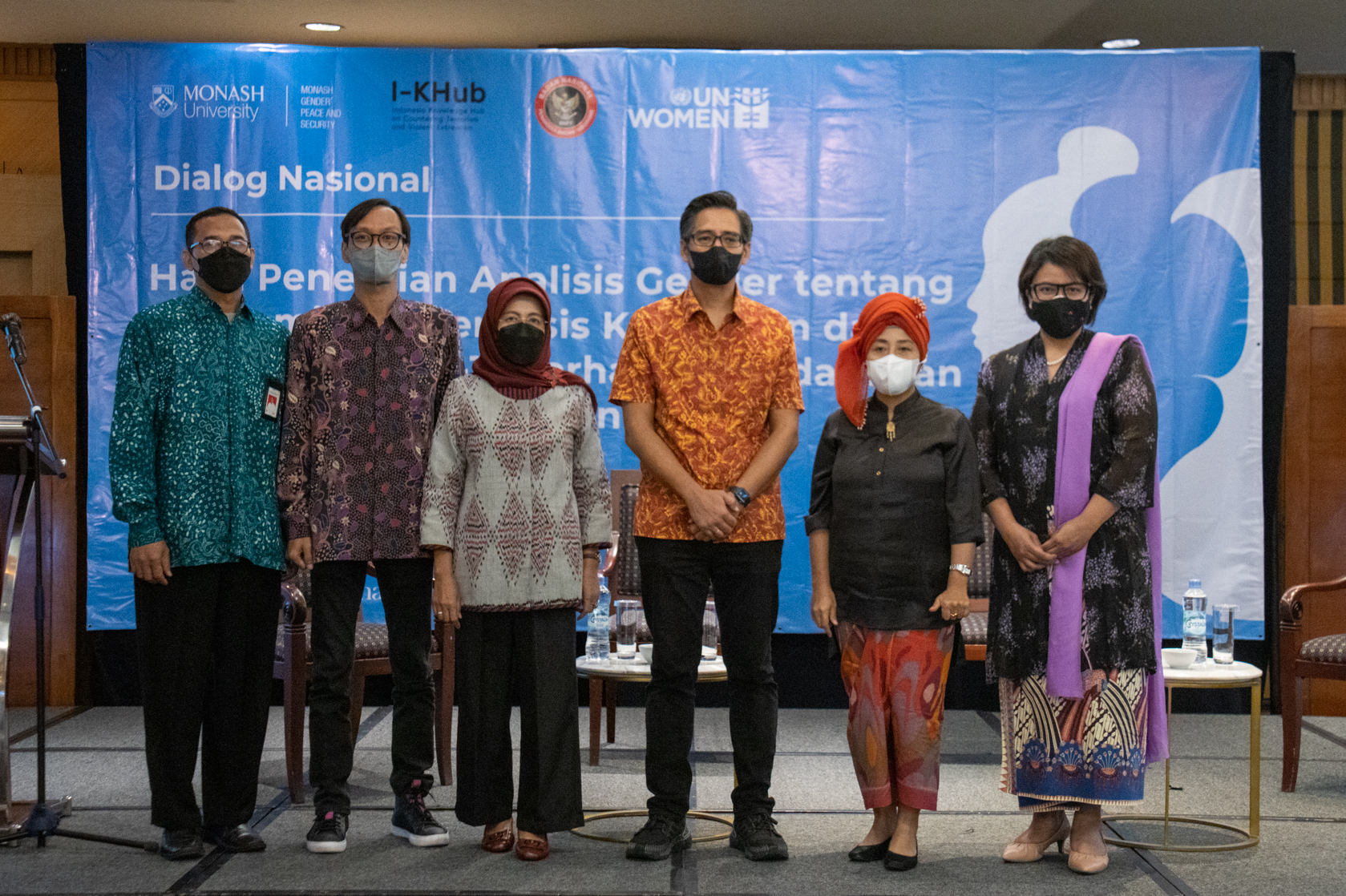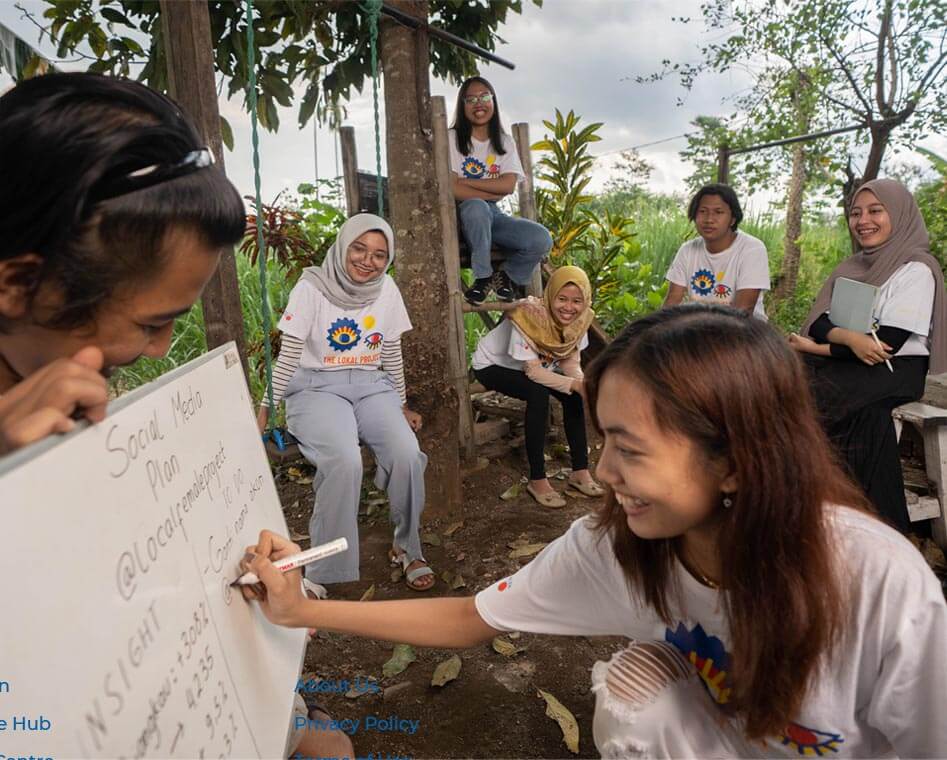National Counter Terrorism Agency and UN Women organize dialogue on gender-responsive policymaking to counter extremism in Indonesia

Jakarta, Indonesia – Senior Indonesian Government officials today discussed how they could follow up on a joint report by National Counter Terrorism Agency and UN Women that showed that violent extremist groups in South-East Asia have been strengthening their campaigns by exploiting social hostilities towards women.
Forty officials from 13 Ministries, including representatives from the Ministry of Women’s Empowerment and Child Protection, the Ministry of Religion and the Ministry of Foreign Affairs, attended the National Dialogue, organized by UN Women and the Indonesian Knowledge Hub on Countering Terrorism and Violent Extremism, a unit of the National Counter Terrorism Agency.
“Today’s dialogue reminds us that policymaking on preventing and countering violent extremism requires not a one-size-fits-all approach but a gender-sensitive one that caters to the needs of individuals,” said Andhika Chrisnayudhanto, Deputy for International Cooperation of the National Counter Terrorism Agency, and also Chair of the Senior Officials Meeting on Transnational Crime Working Group on Counter-Terrorism of ASEAN.
The discussions centred on key findings and recommendations relevant to Indonesia from a study released in April conducted by Monash University in Australia, Gender Analysis of Violent Extremism and the Impact of COVID-19 on Peace and Security in ASEAN. The Association of Southeast Asian Nations groups 10 countries including Indonesia.
The study found that extremists were taking advantage of the COVID-19 pandemic to strengthen their organizations; using online messaging to espouse misogynistic views; and appealing to masculine ideals to attract recruits and legitimize violence. It recommended making public policies that take into account how extremists “construct gender norms”, and how women are radicalized or affected by violent extremism differently from men.
The dialogue encouraged more discussions on the different implications for women, and for men, of Indonesia’s anti-extremism policies. Among other topics, participants discussed the different roles women play in extremism and terrorism (not only as survivors but also as perpetrators and supporters); the gendered causes of radicalization; and the ways different extremist groups construct gender norms.
Participants also discussed lessons learned from making and implementing the National Plan of Action on Countering Violent Extremism that Leads to Terrorism. The plan takes a participatory approach, involving 48 Ministries and 37 civil society organizations. Women-led organizations such as AMAN Indonesia, which partners with UN Women on strengthening women, peace and security, are playing major roles in implementing the plan.
Dwi Yuliawati-Faiz, Head of Programmes at UN Women Indonesia, said: “To design effective and inclusive programmes and policies to prevent violent extremism, not only do we need a whole-of-society approach, but also to consider the differential needs and experiences of women and men as well as women’s roles and motivations in the process of radicalization.”
The gender analysis and extremism report was done as part of UN Women’s project, Empowering Women for Sustainable Peace: Preventing Violence and Promoting Social Cohesion in ASEAN, funded by the Governments of Canada and the Republic of Korea.
Note to editor
Indonesia’s National Counter Terrorism Agency led the development of ASEAN Bali Work Plan 2019-2025 on countering extremism. It is also the Chair of the Senior Officials Meeting on Transnational Crime Working Group on Counter-Terrorism of ASEAN. National Counter Terrorism Agency partnered with UN Women on the report Gender Analysis on Violent Extremism and the Impact of COVID-19 on Peace and Security in ASEAN: Evidence-based Research for Policy.
To access the full report and executive summary in English and Bahasa Indonesia
Full report
Executive Summary

